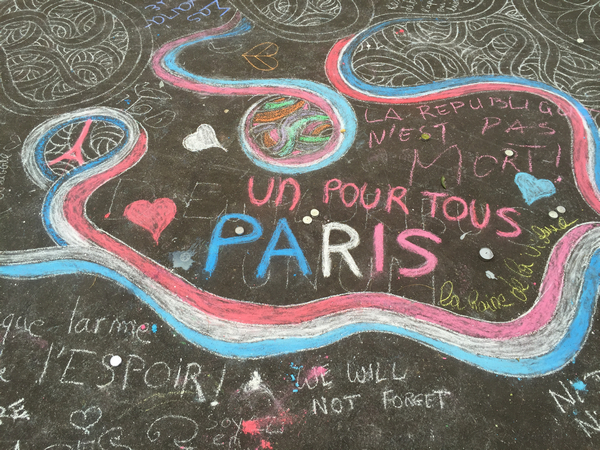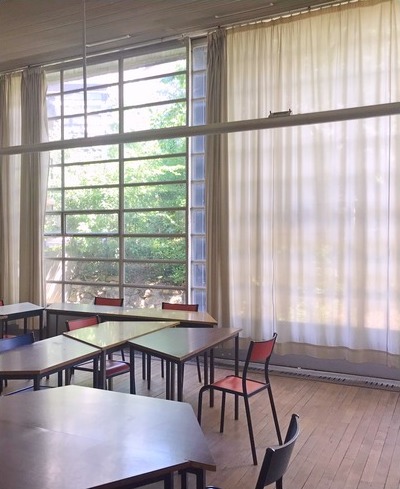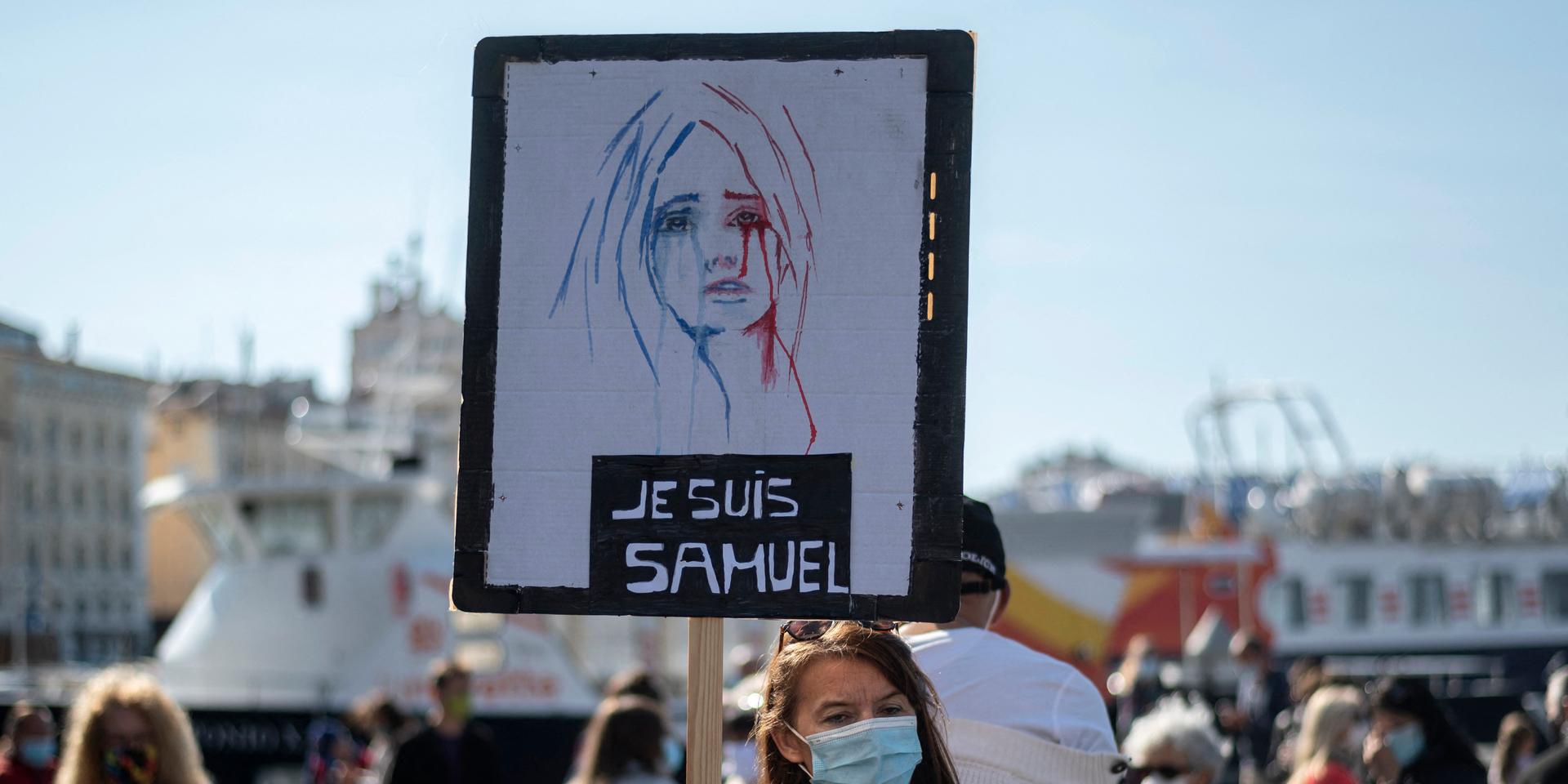The Museum and Memorial of Terrorism has been designed as a place of remembrance and reflection, a museum of history that looks toward the future, and a space of research and learning for adults and young people. Through its learning center, the Museum and Memorial of Terrorism seeks to educate young people (late elementary-school age through the college years) to become enlightened citizens that are tolerant and open to others and the world.
In its educational mission, the Museum and Memorial of Terrorism is an ally for educators seeking to provide lessons related to museum themes in their classrooms or undertake projects with their students.
Prior to Inauguration
The museum inauguration is planned for 2027, but educational programming began in fall 2021.
“Facing Terrorism: An Exhibition by Middle and High School Students”
This exhibition was built in collaboration with schools. It will initially take a digital form, but it will become an immersive traveling experience.
Middle and high school classes from the Académies of Paris, Créteil, and Versailles have already begun participating in this project, under the guidance of educators from many disciplines and specializations: literature, the humanities and philosophy, languages, history/geography, geopolitics and political science, art history, plastic arts, music and dance, and cinema and digital media. The aim is for the exhibition to be a synopsis of student discussions through different media. Educational and writing workshops, museum visits, meetings with witnesses, film screenings, readings, debates, and round tables will guide students in their reflections.
Guidance for Educators
The Museum and Memorial of Terrorism can provide guidance to educators seeking to address complex issues in interdisciplinary projects with their students. For students ages 10 to 18, topics linked to terrorism, its victims, testimony, trauma, and memory — all central to the work at the Museum and Memorial of Terrorism — can be covered by different disciplines, including history/geography, literature, philosophy, the arts (theater, plastic arts), life sciences, and earth science. The Museum and Memorial of Terrorism can help with questions like: how to explain secularism and republican values; how to explain conflicts in the Middle East; how to prevent radicalization; how to deconstruct jihadist recruitment rhetoric. To respond to these questions, educators will be put in contact with experts (historians, academics, researchers, etc.), and, as part of training schemes for teachers, they can participate in training days, seminars, conferences, and summer or fall university sequences on topics linked to terrorism in all its dimensions (history, literature, cinema, philosophy, science, etc.).
After Inauguration
Workshops and Thematic Experiences
The museum’s educational programming will be multi-faceted so that it can provide content for the different disciplines that have terrorism on the curriculum, both in the general and specialized tracks in middle and high schools. The issue of terrorism is now part of the school curriculum, and it appears in different subjects.

Educational programming may include:
- workshops on the recent and distant histories of terrorism and impacts on societies, institutions, and on daily life.
- literary workshops on specific books, like Disturbance: Surviving Charlie Hebdo by Philippe Lançon, Lettres à Nour by Rachid Benzine, You Will Not Have My Hate by Antoine Leiris, Continuer by Laurent Mauvignier, etc. Meetings with authors could be arranged. One idea would be to work on the theme of mourning in literature and the advantages of writing.
- writing workshops: writing allows students to express feelings and emotions. Students can use different narrative forms to reflect on notions of sorrow, trauma, and resilience. Poetry is also a very good means of freeing the mind.
- artistic workshops: oral readings/performances, choreography, music, cinema (Heaven Will Wait, Young Ahmed, the series En thérapie, etc.), comics (Dessiner encore de Coco).
- theme-based and multidisciplinary workshops: on prejudice, conspiracy theories, justice, the notion of the executioner or terrorist, the relationship to otherhood and foreigners (learning to understand others, reducing fear of others), the media, media coverage of events and how information is packaged and received, and so forth.
- experiences that draw on archival materials to trace individual fates.
Educational booklets designed by cultural experts will be available for all of these workshops. These booklets will be used in learning activities with students. Teachers can then reuse them in the classroom to help students gain a deeper understanding.
Through partnerships with other museums of history and society, the Museum and Memorial of Terrorism will create joint visits and experiences that make connections between the past and the present.

Testimonies and Lectures
Students are always very sensitive to personal testimonies, which form a vital starting point for reflection. Personal experiences help make what students learn more tangible. Students will have heard about recent events in the media. Meeting and speaking with direct and indirect victims of attacks is a very important experience for students. The living memory represented by these meetings speaks more to them than do history books.
Readings, Conversations, and Performances
Attacks affecting France in recent years have given birth to many artistic works. School-age children can attend performances in the Museum and Memorial of Terrorism’s auditorium. An idea would be for readings and performances of works to be followed by a conversation. When a new work is released, meetings with the author allow the public to come and discuss, recount memories, and share experiences. Speaking can be a freeing experience.
For individuals and groups
Workshops for a more in-depth exploration of different exhibition topics will be available for individuals and groups. They can be part of or separate from museum visits.
Examples of workshops: Deciphering Images, Current Debates, Ongoing Trials (to understand trials of terrorists), Creative Workshops (writing, photography, video, or music), Museums and Well-Being (as part of the museum’s humanist and universalist mission, the MMT intends to provide expression and therapy workshops that will be designed with experts in the fields of education, health, social services, etc. These may include Yoga Workshops and Art Therapy Workshops).

